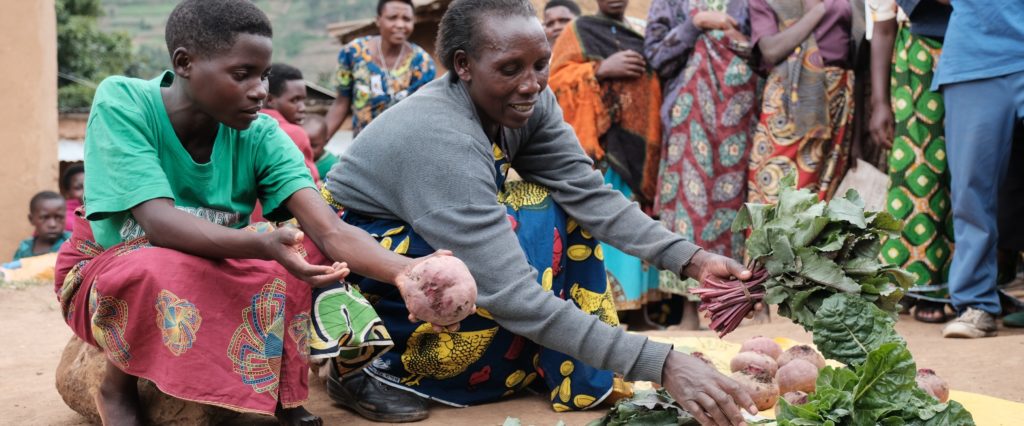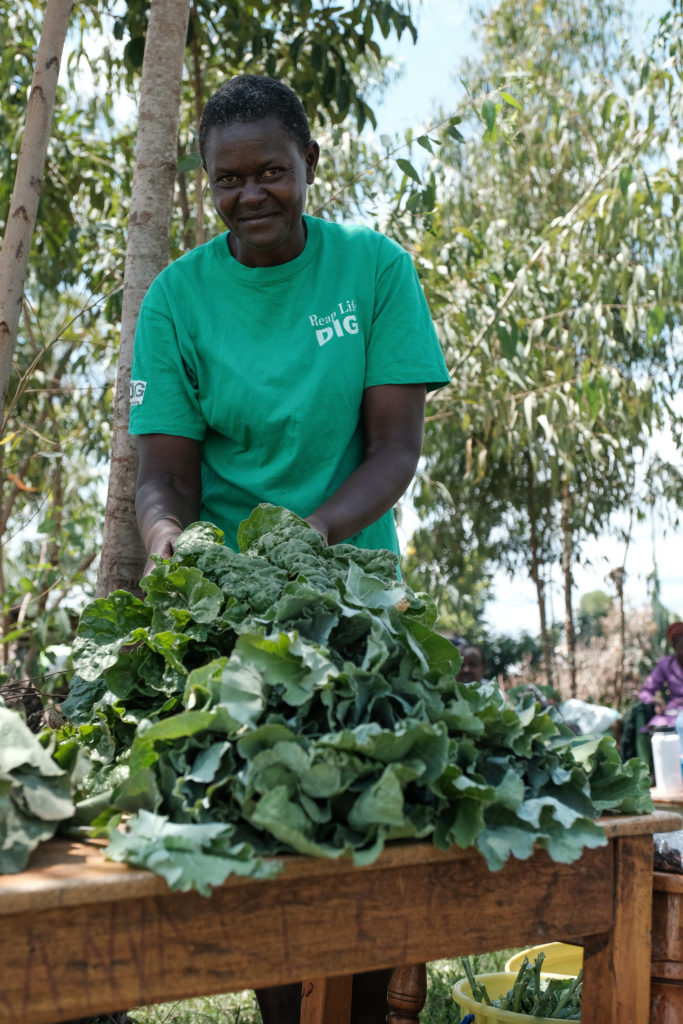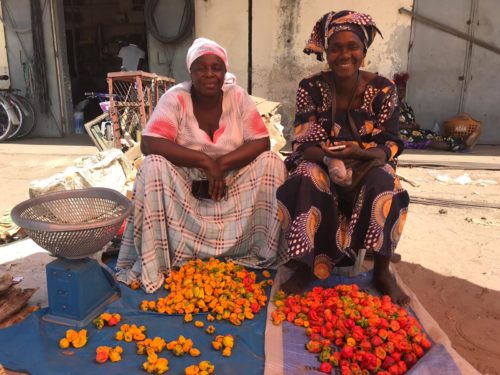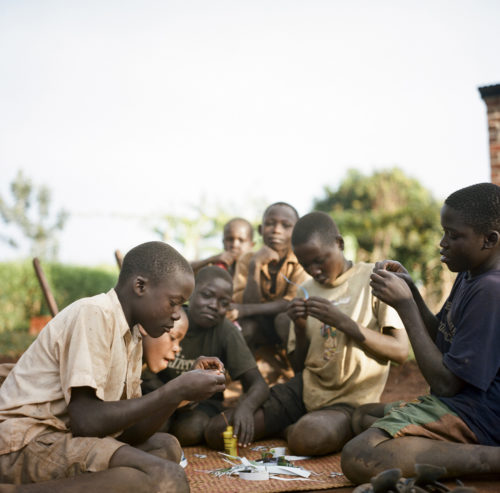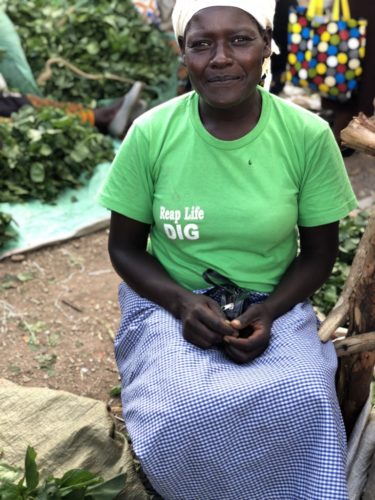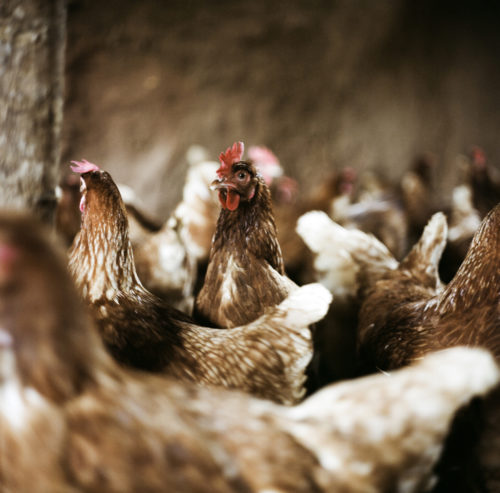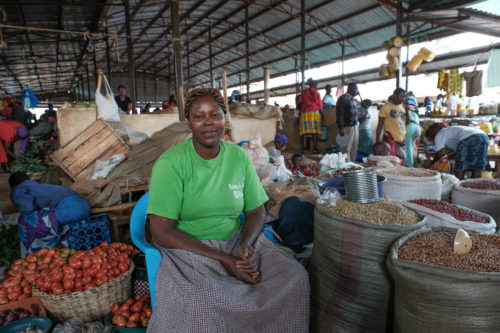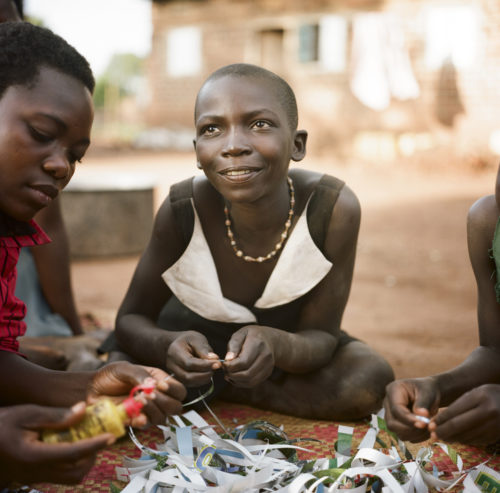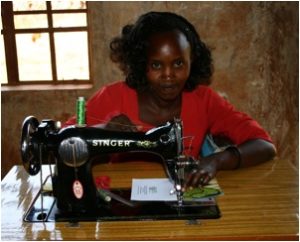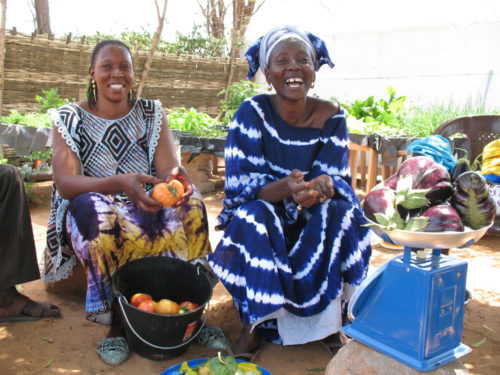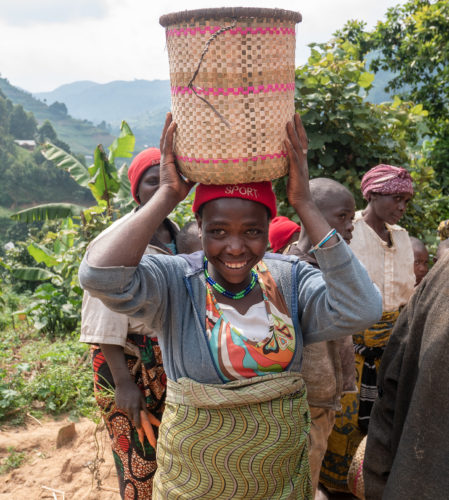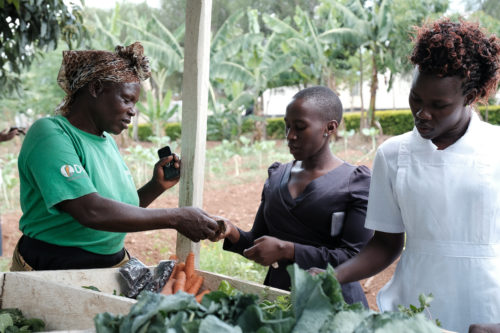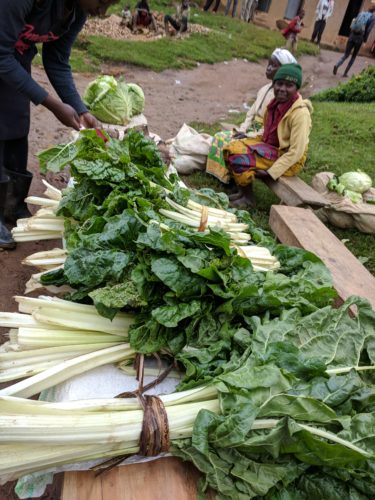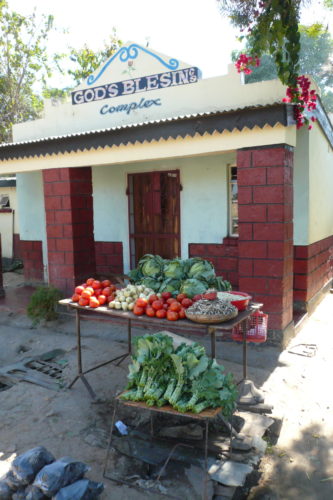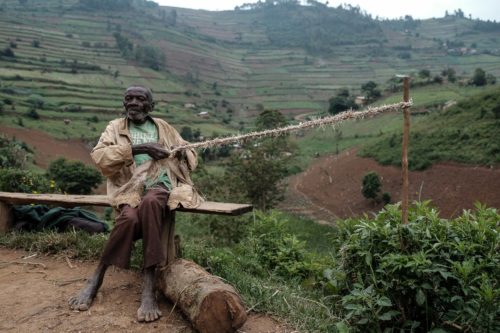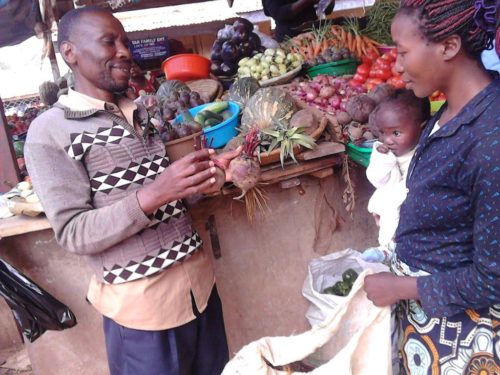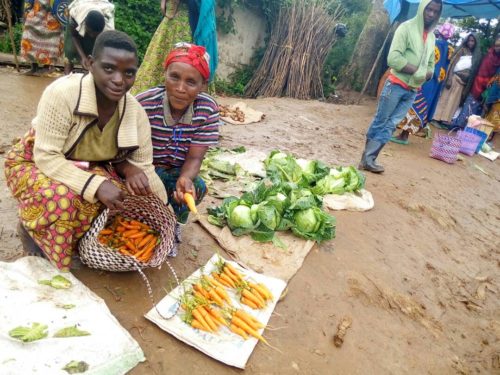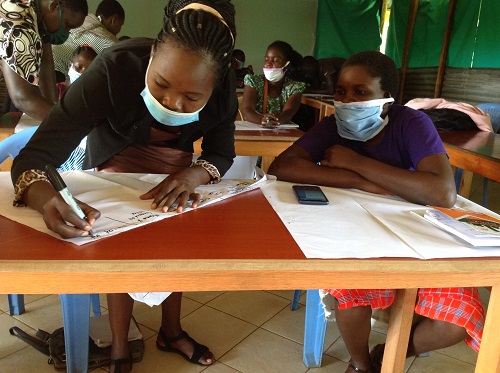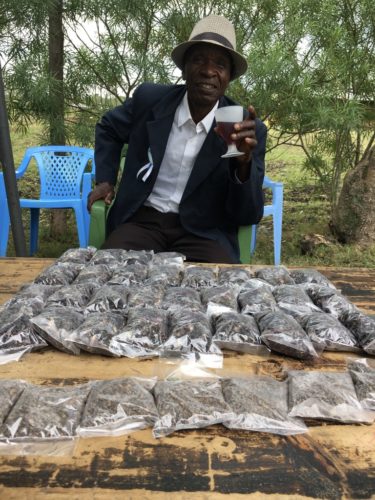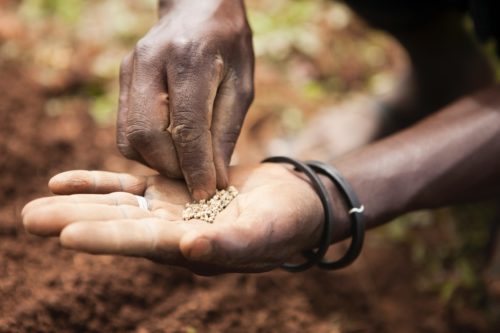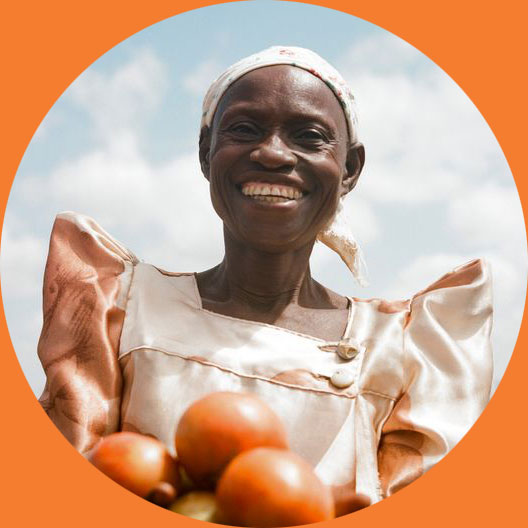By prioritizing the most vulnerable communities: people living with HIV, chronically malnourished, extremely impoverished, physically disabled, and the elderly, DIG is filling a gap unmet by many providers. DIG aims to move them above a nutritional and economic threshold, where they can then access additional services and markets otherwise unavailable to them.
This is a critical link in a larger and more wholistic response to poverty and hunger worldwide; it is the very foundation for the United Nation’s Sustainable Development Goals overall success.
On average, DIG graduates are able to almost triple their income from the sales of their excess garden produce. Their annualized gains, from produce sale and savings from sourcing meals from their gardens, is roughly $420 a year. That’s enough to move them above the local poverty line and on to something greater.
This newfound economic stability allows them to realize dreams of sending their children to school, investing in their homes, or covering important medical expenses.
It’s worth noting that while other models take existing farmers and make them more profitable, many of DIG’s graduates were not farmers when they met us, and most had never thought a farming business was a career choice they could make.
